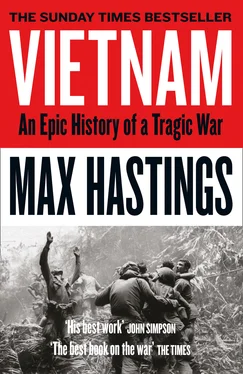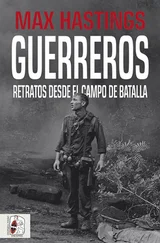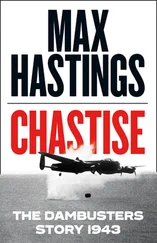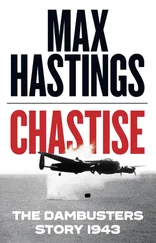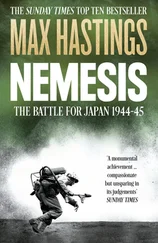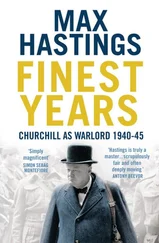Robert Kennedy, as attorney-general present at the creation of much Indochina policy-making, said that ‘a military answer is the failure of counter-insurgency … Any effort that disregards the base of social reform, and becomes preoccupied with gadgets and techniques and force, is doomed to failure and should not be supported.’ Lyndon Johnson reported after his 1961 trip to Vietnam on the importance of ‘responsible political institutions … There must be a simultaneous, vigorous and integrated attack on the economic, social and other ills of the Vietnamese people. The leadership and initiative in this attack must rest with the Vietnamese leaders.’ Roger Hilsman of the State Department opined that insurgency ‘isn’t a war, it’s a political struggle with military aspects’. Such good sense should have led the policy-makers to a harsh conclusion: unless a political foundation existed, the military commitment was futile. Vietnamese were unimpressed by programmes and systems: they judged everything by personalities, and most recoiled from the Ngo family nexus – its cruelty, incompetence and Catholicism. Even Americans were embarrassed by the fact that while democracy was the mantra constantly cited as providing a moral basis for promoting resistance to communism, Washington set its face against any outcome determined by ballot.
Yet some influential people continued to argue that the regime’s shortcomings did not matter. The CIA’s Colby cared nothing that Diem was running a dictatorship, only that it should sort-of work. He wrote later: ‘The task in South Vietnam required strong leadership, and Diem’s messianic dedication seemed more appropriate than did the confusion and indecision that could come from overly precise application of the American doctrine of the separation of powers.’ Colby formed an amicable working relationship with Ngo Dinh Nhu – indeed, Agency colleagues were bemused by his enthusiasm for this sinister figure. When the case for replacing Diem became an Agency talking point, Colby bizarrely suggested that brother Nhu might fill the bill.
The 17 April 1961 Bay of Pigs invasion by Cuban exiles backed by the CIA took place less than four months into the Kennedy presidency, and overshadowed all its subsequent policy-making. So too did the communists’ erection of the Berlin Wall in August, and Khrushchev’s taunting that Vietnam was a Soviet laboratory for wars of national liberation. Nobody then knew that the West would win the Cold War. No American heard Khrushchev tell Anatoly Dobrynin, who in 1962 became the new Soviet ambassador to Washington, that he must never forget that an armed showdown with the US was unthinkable, and thus his foremost priority was to work to prevent it: ‘Don’t ask for trouble.’ The world lived in a climate of nuclear fear, and the communists posed a historic challenge. In such circumstances it was hard for national leaders and their advisers to think and act proportionately and wisely. Today, it is easy to forget that the other side blundered as often as and even more brutally than did the Western Powers – for instance in Hungary, Cuba, Berlin, Poland.
Kennedy and his fellow-crusaders saw themselves engaged in a life-and-death global competition with the communists. The president said of insurgencies such as that mounted by the NLF: ‘No one can call these wars of liberation … These are free nations.’ This was half-true – more true than some American liberals recognised then or since – but also half-false, because however ugly was the ruling regime in North Vietnam, that in the South was little less oppressive, and mitigated only by the fact that Diem’s people did not go hungry.
An extraordinary aspect of the decision-making in Washington between 1961 and 1975 was that Vietnamese were seldom if ever allowed to intrude upon it. Successive administrations ignored any claims by the people who inhabited the battlefields to a voice in determining their own fate: business was done in a cocoon of Americanness. Frederick ‘Fritz’ Nolting, 1961–63 ambassador in Saigon, once cautioned defense secretary Robert McNamara that it was ‘difficult, if not impossible, to put a Ford engine into a Vietnamese oxcart’. The secretary professed to agree – but went ahead with doing that anyway. There is a great line in David Halberstam’s The Best and the Brightest about Vice-President Lyndon Johnson’s awed reaction after seeing McNamara, Rusk, Bundy, Schlesinger, Rostow and the rest of the Kennedy Round Table gathered for the first time. He rushed off to tell his friend and mentor Sam Rayburn, speaker of the House, about this brilliant group, only to be deflated by the droll response: ‘Well, Lyndon, you may be right and they may be every bit as intelligent as you say, but I’d feel a whole lot better if just one of them had run for sheriff once.’ Or knew some Vietnamese.
When McNamara visited Vietnam with Max Taylor, a Vietnamese eye-witness wrote that most of the secretary’s questions were directed to the advisers present, rather than to those doing the fighting: ‘Some [US officers] looked like naughty … students in front of an austere principal … In one exchange that greatly embarrassed a Vietnamese intelligence officer and his American counterpart, McNamara asked how many of our secret agents were working in the enemy’s ranks.’ The answer was none, which remained the case until late in the war. The CIA did not contrive a wiring diagram of the communist leadership until 1969.
As well as military advisers in the field, the administration received plenty of advice from gurus back at home. The Cold War spawned a proliferation of think-tanks, committed to provide both technological studies and intellectual underpinning for strategy, above all nuclear deterrence. The Advanced Research Projects Agency, familiarly known as DARPA and created in 1958 following the shock of the Soviet Sputnik launch, conceived a range of counter-insurgency techniques, almost all of which proved fanciful, and was also begetter of the chemical defoliation programme that deployed Agent Orange. The Santa Monica-based RAND Corporation was a non-profit-making body which received large funding from the air force. It employed smart people, but showed a predisposition to ride with policies already espoused by those who paid its bills.
McNamara was an unsurprising enthusiast for its work, much of which reflected the systems analysis he favoured. When the British academic Professor Michael Howard visited Santa Monica, he was impressed by the brainpower on site, but wrote later of his unease that RAND ‘seemed like a monastery inhabited by clever theologians, who were quite remote from the real affairs of the world … The Randsmen seemed to be falling into the error of assuming that everything connected with war could be quantified.’ Howard was especially dismayed to hear them earnestly debating how quickly the city of Los Angeles could get humming again after a nuclear war.
With the coming of Jack Kennedy, RAND’s chiefs realised that counter-insurgency was becoming big business, and in 1961 dispatched their first emissary to Saigon. During the years that followed, the corporation played a significant advisory role. Almost nobody among its eggheads questioned the rationale for US engagement: fired by missionary zeal, they simply sought to figure out how their country could best win this thing. Analyst Alex George said: ‘There were no pacifists at RAND.’ In the early 1960s most of their research was done in Santa Monica, because few staffers wanted to relocate to Saigon.
In justice to the Kennedy administration, in those days a significant number of South-East Asian leaders, notably including Singapore’s Lee Kuan Yew, shared or professed to share its belief that the defeat of Vietnam’s communists was critical to regional stability. So did some key allies. The British government regarded the US position in Indochina as precarious, but foreign secretary Lord Home minuted, ‘I hope the Americans can hold on.’ Whatever had been Britain’s reservations about the commitment, now that Western prestige was staked, winning seemed to matter. Malaysia’s prime minister Tunku Abdul Rahman urged Sir Robert Thompson, who had played an important role in orchestrating the defeat of his country’s communist insurgency, ‘You must go to Vietnam and help hold my front line.’
Читать дальше
